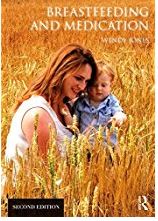Especially since the pandemic many more mothers have been asking about the compatibility of citalopram during breastfeeding. It has been a hard time for everyone with the incidence of anxiety and depression continuing to rise. As access to IAPT ( https://www.england.nhs.uk/mental-health/adults/iapt/) may be more difficult the prescription of medication is inevitable. Alternative CBT access may be available on line via and IESO (https://www.iesohealth.com/en-gb)
Citalopram is widely used and we have a high level of experience with it over many years. It is the drug of choice if it has been used by the mother in the past.
Unfortunately many doctors are, in my experience, still recommending that mothers should stop breastfeeding in order to take antidepressants. This may be that they think life would be easier if someone else could help with care of the baby or that the mother may get more sleep. Sadly, this doesnt always happen and the loss of oxytocin may also lower mood further.
There is often an assumption that pressure to breastfeed can lead to depression but in my experience pressure to stop breastfeeding in order to take medication may increase depression and may also stop mothers accessing professional help to avoid having that discussion.
This link to the RCGP perinatal mental health toolkit may be useful for professionals and parents
RCGP Mental Health Toolkit https://elearning.rcgp.org.uk/mod/book/view.php?id=13115
This factsheet contains information from my book Breastfeeding and Medication. Please message me for references used or with any questions.
See also https://breastfeeding-and-medication.co.uk/fact-sheet/depression-and-breastfeeding-2
https://www.breastfeedingnetwork.org.uk/factsheet/anxiety/
Citalopram | Drugs | BNF | NICE
“Specialist sources indicate that sertraline and paroxetine are the SSRIs of choice in breast-feeding based on passage into milk, half-life, and published evidence of safety. However, all SSRIs can be used in breast-feeding with caution, and since there are risks with switching an SSRI, it may be more clinically appropriate to continue treatment with an SSRI that has been effective, or restart treatment with an SSRI that has previously been effective. With all SSRIs, infants should be monitored for drowsiness, poor feeding, adequate weight gain, gastro-intestinal disturbances, irritability, and restlessness.”
https://www.ncbi.nlm.nih.gov/books/NBK501185/
https://www.e-lactancia.org/breastfeeding/citalopram/product/
citalopram and breastfeeding factsheet pdf

Citalopram is widely used by breastfeeding mothers.
It has a lower plasma protein binding than sertraline – less than 80% and the metabolite enters breastmilk in low levels. The manufacturer anecdotally reported cases of excessive somnolence, decreased feeding and weight loss in breastfed infants (Hale). However, more recent research suggests that symptoms are minimal and may not be associated with the use of this drug in lactation
There is one report of an infant exhibiting ‘uneasy’ sleep patterns on a maternal dose of 40 mg per day (Schmidt et al. 2000) that resolved when the mother’s dose was reduced and partial substitution with artificial formula undertaken.
Spigsett et al. (1997) studied two patients and estimated the absolute dose to the infant during steady-state conditions would be 0.7–5.9% of the weight-adjusted maternal dose.
Berle’s study (2004) of 25 women taking SSRI antidreprssants (nine taking citalopram) reported that no adverse effects on the babies were noted. The infant serum levels of citalopram were undetectable in four infants and low in the remaining six.
Lee et al. (2004) conducted a prospective, observational study of 31 mothers suffering from depression and taking citalopram with 12 mothers with depression but not taking citalopram and 31 healthy control women and babies. Mothers were taking up to 60 mg citalopram daily. There were numerically more reports of adverse events in the trial group 3 per 31 (depressed and taking citalopram group) compared with 1 per 31 (control group) and 0 per 12 (depressed but not taking citalopram group) but this was not a statistically significant difference. Infants of the mothers in the group exposed to citalopram reported colic, decreased feeding and irritability.
Heikkinen et al. (2002) studied 11 mother and baby pairs with matched controls, for up to 2 months after delivery. The neurodevelopment of the children was monitored for up to 1 year. The levels in infant plasma were very low or undetectable. The delivery outcomes and development were normal. Relative infant dose quoted as 3.6% (Hale).
References
- Berle JØ, Steen VM, Aamo TO, Breilid H, Zahlsen K, Spigset O, Breastfeeding during maternal anti-depressant treatment with serotonin reuptake inhibitors: infant exposure, clinical symptoms, and cytochrome P450 genotypes, J Clin Psychiatry, 2004;65:122834.
- Heikkinen T, Ekblad U, Kero P, Ekblad S, Laine K, Citalopram in pregnancy and lactation, Clin Pharmacol Ther, 2002;72: 184–91
- Lee A, Woo J, Ito S, Frequency of infant adverse events that are associated with citalopram use during breastfeeding, Am J Obstet Gynecol, 2004;190(1):21821.
- Schmidt K, Oleson OV, Jensen PN, Citalopram and breastfeeding: serum concentration and side effects in the infant, Biol Psychiatry, 2000;47:1645.
- Spigset O, Carieborg L, Ohman R, Norstrom A, Excretion of citalopram in breastmilk, Br J Clin Pharmacol, 1997;44(3):2958.
My book “Breastfeeding and chronic medical conditions” contains chapters on anxiety and depression
wendy@breastfeeding-and-medication.co.uk


